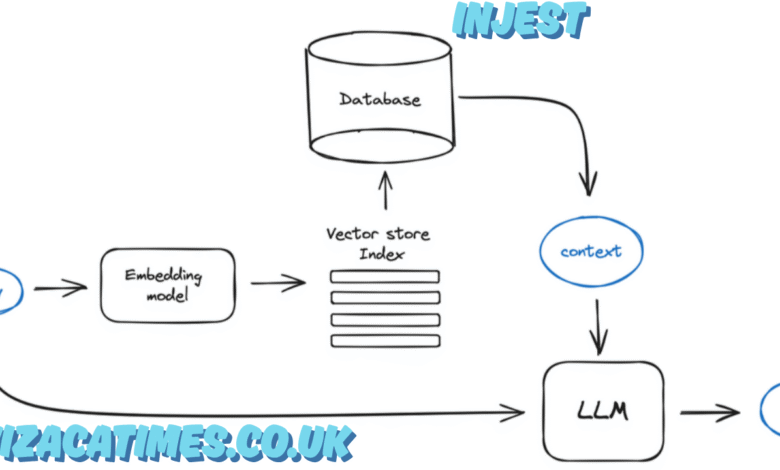Injest, ??, Meaning, Uses, and Interpretations: A Deep Dive into “Injest”

Understanding “Injest”: A Word Surrounded by Curiosity and Confusion
The word “injest” might appear simple at first glance, yet it carries layers of confusion, curiosity, and misinterpretation. People often come across “injest” in written form and wonder—is it a typo of “ingest,” or does it have an entirely different meaning? While many dismiss it as a misspelling, a closer inspection reveals that “injest” might hold more significance than assumed, especially in contexts where intention and humor converge. This article explores the term “injest,” its meanings, various interpretations, usage in spoken and written language, and how it has evolved over time.
Injest vs. Ingest: Are They the Same or Different?

Let’s begin by clarifying the confusion between “injest” and “ingest.” The word ingest is the correct term used in biology, nutrition, and medical fields. It means “to take into the body by swallowing or absorbing.” For example: “Humans ingest food to sustain life.”
On the other hand, “injest” is often flagged as a misspelling, especially by automated spellcheckers. However, in some informal or humorous contexts, “injest” is used as a play on words—often meaning “to say in jest” or “not seriously.” Therefore, while “ingest” has a clinical, biological meaning, “injest” walks the tightrope between creativity and error. It becomes a gray-area word—either misunderstood or cleverly twisted for effect.
The Possible Origins of “Injest”: Mistake or Innovation?

Language evolves continuously, often shaped by slang, cultural expressions, or typing errors. The emergence of “injest” seems to be one such case where informal speech or humor might have influenced its use. For example, someone saying something sarcastic or jokingly might write:
“I was only injesting—you took it too seriously!”
Here, “injest” plays on the double entendre of jest (as in joke) and ingest (as in to consume), making it a hybrid, tongue-in-cheek expression.
Some linguists and writers refer to this as “creative linguistic error”—where a new term arises from a misunderstanding or purposeful manipulation of spelling to convey a different meaning. “Injest,” in this light, could be seen not as an error but as a reflection of how language bends in informal or satirical settings.
Using “Injest” in Sentences: Is It Acceptable?
Although not officially recognized in dictionaries, “injest” has been spotted in informal blogs, comments, memes, and conversational writing. Below are a few sentence examples where “injest” is used informally or humorously:
- “Don’t be mad—I said that injest!”
- “Was that an insult or was it just injest?”
- “He injested that entire statement like it was a joke.”
In each of these examples, the speaker intends to downplay the seriousness of a previous statement. The spelling “injest” becomes an informal blend of “jest” (joke) and possibly “ingest” (as if someone swallowed the joke too seriously).
While grammarians may frown upon its usage in formal writing, its presence in casual speech or online culture shows it resonates with people in specific contexts.
The Social and Cultural Layers of “Injest”
“Injest??” can also be a reaction—a way of expressing disbelief, sarcasm, or rhetorical inquiry. For instance, someone reading a bold or unbelievable statement might reply:
“Injest?? You can’t be serious!”
Here, “injest” plays on phonetics and spelling, mimicking the word “in jest” (as in jokingly) but rendered into one colloquial word. In digital culture, especially on forums and social media platforms, users may prefer quicker, stylized spellings that reflect tone or intention. “Injest??” fits this mold—it suggests a lighthearted reaction while carrying the tone of doubt or teasing.
Why Do People Continue to Use “Injest”?
Despite not being in dictionaries, “injest” continues to be used in digital communication. There are several reasons for this:
- Phonetic Similarity: It sounds like “in jest,” so the spelling feels logical in casual writing.
- Tone Conveyance: It allows the writer to show they’re joking or not being serious.
- Typing Speed: It’s easier to type quickly without spaces, especially in texting or chatting.
- Cultural Evolution: As language becomes more fluid online, nonstandard spellings are gaining acceptance.
This persistence shows that “injest” functions as a vernacular innovation—informal but effective among specific groups.
Injest and Humor: The Comedic Edge
Humor is a key arena where “injest” thrives. Comedians, writers, and online commentators often use altered spellings and wordplay to trigger humor or satire. Saying something “injest” could be an intentional misdirection—a way of saying something outrageous, then quickly retracting it with “just kidding” undertones.
In these contexts, “injest” becomes a comedic device, where the word itself hints at a punchline. It gives the speaker a rhetorical escape hatch: the freedom to offend, tease, or provoke—followed by the safety net of, “Hey, it was all injest!”
Should You Use “Injest” in Formal Writing?
The short answer is no—not unless your aim is to be playful or deliberately informal. In academic, legal, or professional writing, it’s important to stick to standardized spelling and usage. “Injest” is not yet a recognized English word, so using it in serious contexts could confuse readers or appear unprofessional.
However, in creative writing, dialogue, blogs, and other expressive formats, using “injest” could be a stylistic choice—as long as the audience understands the intention.
The Future of “Injest”: Slang, Neologism, or Forgotten Mistake?
Whether “injest” will one day become an official word is uncertain. The English language has adopted many words over the centuries that started as errors or informal coinages—like “ginormous” or “selfie.” If “injest” continues to gain traction in casual speech and pop culture, there’s a chance it could one day appear in a dictionary, at least as an informal or humorous term.
Until then, “injest” remains part of the growing gray zone of digital language—not quite correct, not quite wrong, but undeniably interesting.
Frequently Asked Questions (FAQs) about “Injest”
Q1: Is “injest” a real word?
A: “Injest” is not officially listed in major dictionaries. However, it is sometimes used informally as a creative spelling of “in jest,” meaning “as a joke.”
Q2: Is “injest” a typo for “ingest”?
A: Often, yes. Many people accidentally write “injest” when they mean “ingest” (to swallow). However, some use “injest” intentionally to mean “said jokingly.”
Q3: Can I use “injest” in academic or formal writing?
A: It’s not recommended. “Injest” is considered nonstandard and may be seen as an error in formal settings.
Q4: Why do people say “injest??” online?
A: The “??” often expresses disbelief or sarcasm. “Injest??” can be interpreted as “Are you joking?” or “Is that really a joke?”
Q5: What’s the correct phrase: “injest” or “in jest”?
A: The correct phrase is “in jest.” It means something said humorously or without serious intent. “Injest” is a stylized or incorrect form of this phrase.
Conclusion: “Injest, ??,” a Word Born of Jest, Mistake, and Creative Expression
Whether you see it as a typo, a creative twist, or the evolution of informal language, “injest” is an intriguing case of how spelling, speech, and meaning collide in modern English. Its popularity in online communication, casual conversation, and humor reveals that language is not always fixed—it’s a living, breathing tool shaped by those who use it.
Also read : Ugo Nwoke., ?? – A Deep Dive into the Life, Identity, and Public Fascination with Ugo Nwoke.



